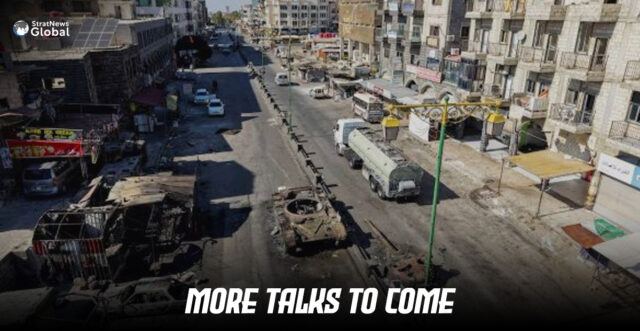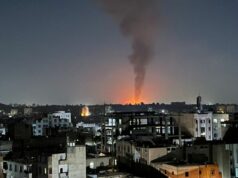Syria and Israel have agreed to continue discussions after U.S.-brokered negotiations in Paris ended without a final agreement on easing the conflict in southern Syria, Syria’s state-run Ekhbariya TV reported on Saturday, quoting a diplomatic source.
The source described the dialogue as “honest and responsible”, in the first confirmation from the Syrian side that talks had taken place.
On Friday, U.S. envoy Tom Barrack said officials from both countries spoke about de-escalating the situation in Syria during the talks on Thursday.
Representatives from the Syrian foreign ministry and intelligence officials were in attendance, Ekhbariya reported.
Syria’s foreign minister held frank and productive talks with the United States and France at which they said on Friday they underlined the importance of ensuring the success of Syria’s political transition, unity and territorial integrity.
Syrian Foreign Minister Asaad Al-Shibani, French Foreign Minister Jean Noel Barrot and U.S. Special Envoy for Syria Thomas Barrack met in Paris, days after a ceasefire halted bloodshed in Syria’s southern province of Sweida.
Clashes In Sweida
Hundreds of people have been reported killed in clashes in the southern Syrian province of Sweida between Druze fighters, Sunni Bedouin tribes and government forces. Israel intervened with airstrikes to prevent what it said was mass killings of Druze by government forces.
Last week’s clashes underlined the challenges interim President Ahmed al-Sharaa faces in stabilising Syria and maintaining centralised rule, despite warming ties with the U.S. and his administration’s evolving security contacts with Israel.
The diplomatic source said the meeting involved initial consultations aimed at “reducing tensions and opening channels of communication amid an ongoing escalation since early December”.
The Syrian side held Israel responsible for the latest escalation, saying that the continuation of such “hostile policies” was threatening the region, according to the source. The Syrian delegation also said that Damascus would not accept “imposing new realities on the ground”.
(With inputs from Reuters)





